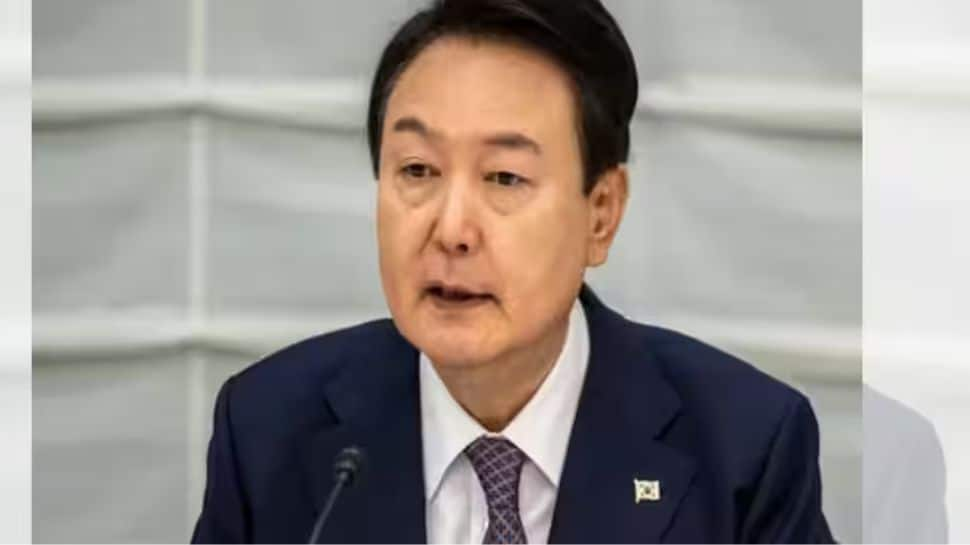 |
|
The impeachment of South Korean President Yoon Suk Yeol has plunged the nation into a deep political crisis, triggering a power struggle between the ruling party and the opposition. The swift and decisive move by the National Assembly, fueled by President Yoon's controversial declaration of martial law on December 3rd, has left the country grappling with uncertainty and a potential constitutional crisis. The aftermath has been marked by intense political maneuvering and a stark division between the ruling People Power Party (PPP) and the opposition Democratic Party (DP). The speed with which the impeachment process unfolded underscores the gravity of the situation and the deep-seated divisions within South Korean politics. The immediate consequences included the suspension of President Yoon's duties, with Prime Minister Han Duck-soo assuming the role of acting president. This transition has heightened anxieties about governance and stability, as the country navigates a period of political flux.
In the wake of the impeachment, the leader of the opposition Democratic Party, Lee Jae-myung, proposed the formation of a consultative body composed of representatives from the parliament and the government. This body, according to Lee, would be crucial in stabilizing state affairs and restoring international confidence in South Korea's political system. Lee's proposal reflects a pragmatic approach aimed at mitigating the potential chaos arising from the presidential vacancy. The proposal emphasized the need for inter-party cooperation to navigate this challenging period, highlighting the urgency of national unity in the face of political instability. However, this olive branch was swiftly rejected by the ruling People Power Party. The PPP, while acknowledging the gravity of the situation, asserted its continued role in governing the country until the conclusion of the Yoon Suk Yeol administration. This rejection underscores the deepening chasm between the two major political forces, highlighting the challenges in achieving political consensus in the midst of this crisis.
The rejection by the ruling party further complicates the already fragile political landscape. The PPP's decision to maintain its governing role without collaborating with the opposition potentially exacerbates the political divide and hinders efforts towards national reconciliation. The differing approaches of the two parties reflect their distinct political agendas and priorities. The DP, focused on ensuring a smooth transition of power and minimizing disruption, seeks collaboration. In contrast, the PPP, despite acknowledging the exceptional circumstances, appears determined to maintain its position and authority. The upcoming decision by the Constitutional Court on whether to uphold the impeachment or reinstate President Yoon will be a pivotal moment that will shape the future political trajectory of South Korea. The 180-day timeframe for the court’s decision adds to the uncertainty, prolonging the political instability and creating a climate of anticipation.
The situation is further complicated by the ongoing police investigation into the martial law declaration. Prime Minister Han Duck-soo, now acting president, has been summoned for questioning. This investigation adds another layer of complexity to the already tense political environment. The decision by Lee Jae-myung not to pursue the impeachment of Han Duck-soo, at least for now, suggests a calculated approach aimed at avoiding further destabilizing the country. However, this decision could also be interpreted as a strategic move, preserving options for future political maneuvering. The timing of the Constitutional Court's decision and the outcome of the police investigation will be key factors shaping the political landscape of South Korea in the coming months. The international community is watching closely, with concerns about the potential impact on regional stability and South Korea's global standing.
The events unfolding in South Korea serve as a potent reminder of the fragility of democratic institutions and the importance of political stability. The impeachment of a president, while a significant event within a democratic framework, carries the potential for far-reaching consequences, including economic instability, social unrest, and international ramifications. The response of both the opposition and the ruling party will be crucial in determining how South Korea navigates this unprecedented period. The need for calm, reasoned dialogue, and a commitment to the rule of law are paramount in addressing the challenges facing the country. The long-term consequences of this political crisis remain uncertain, but the immediate priority for South Korea is to ensure stability and restore confidence in its democratic processes.
Source: Opposition Leader Proposes Consultative Body After President Yoon's Impeachment In South Korea
